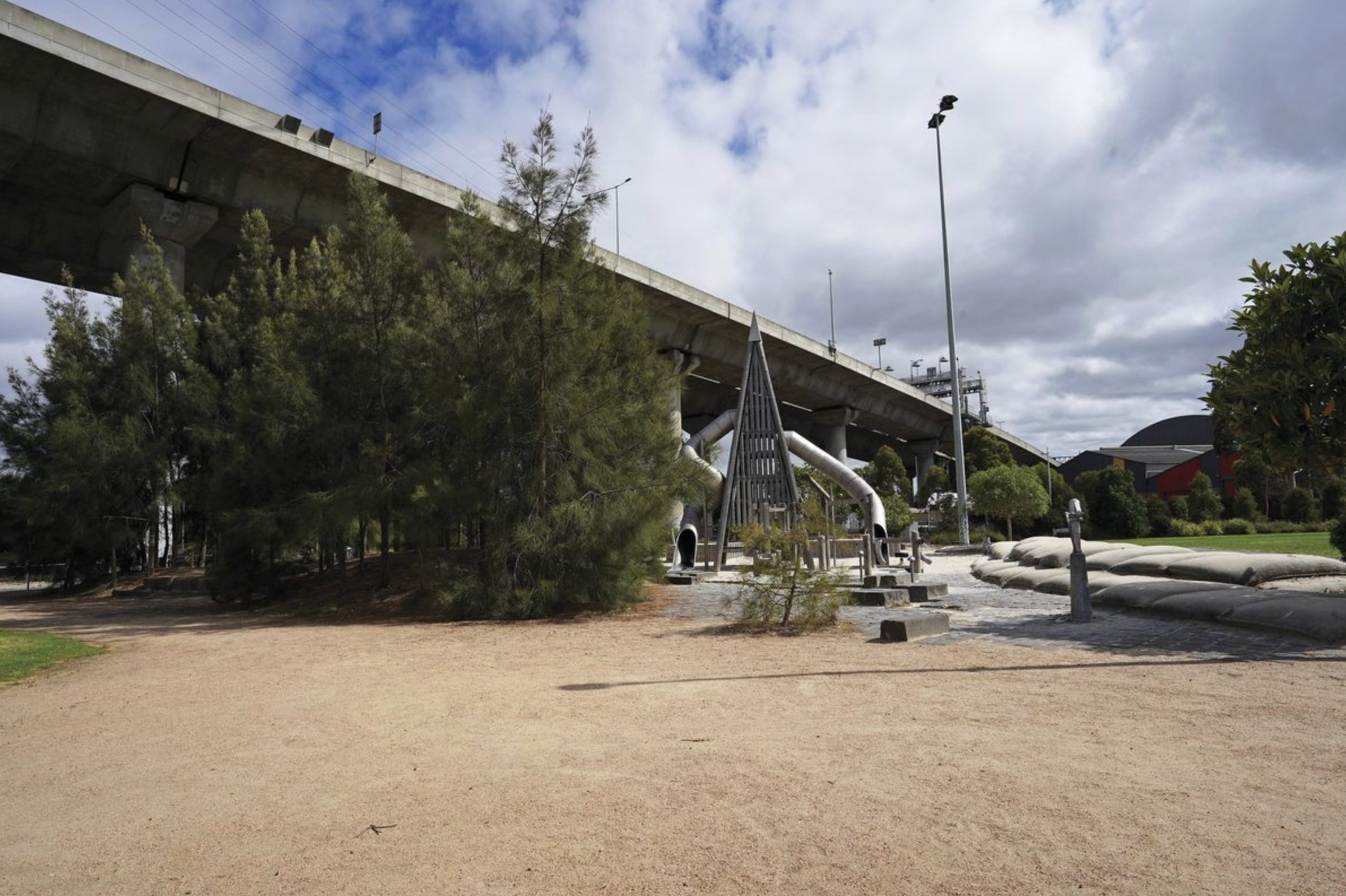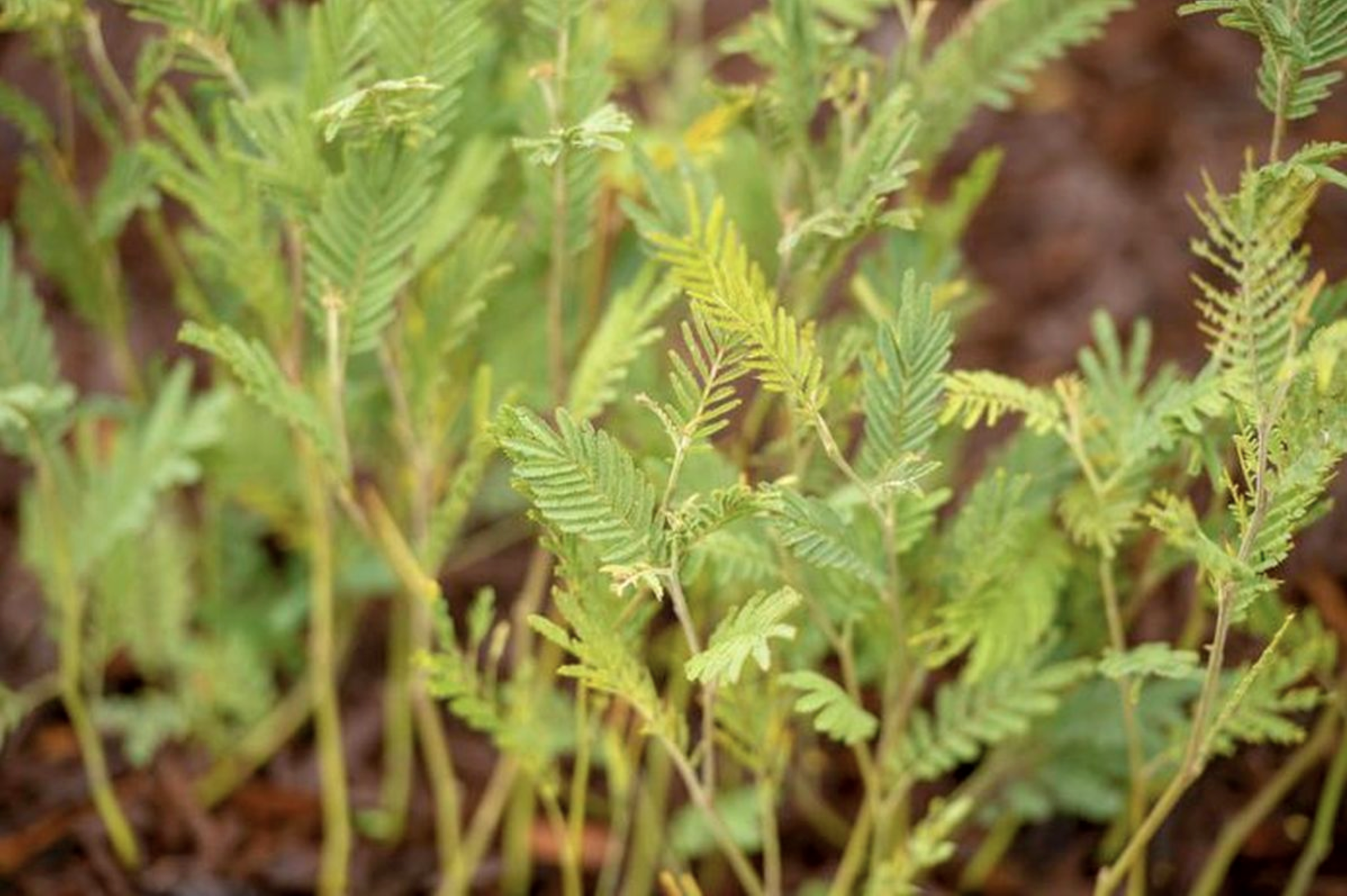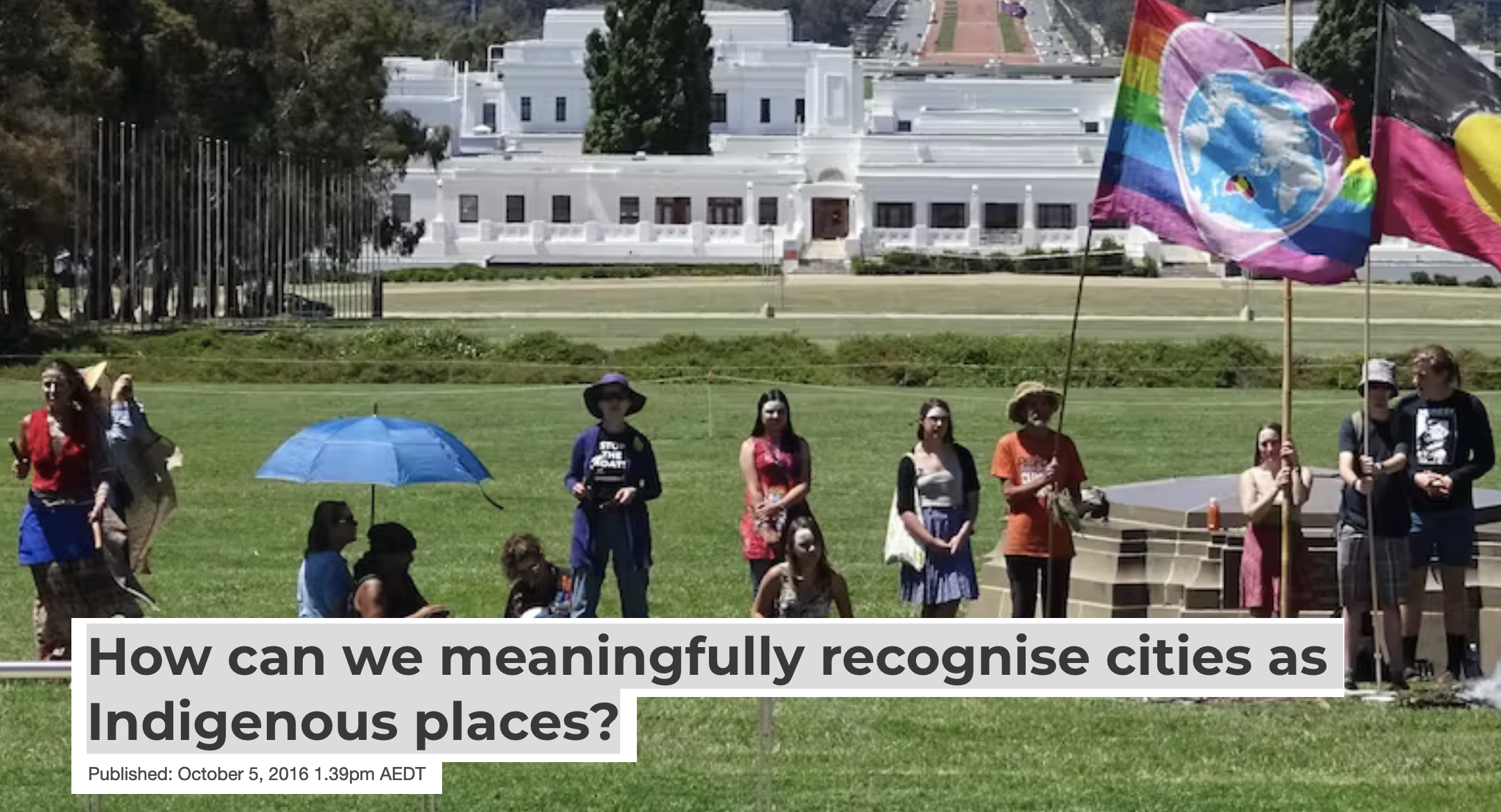
Research Portal
Currently, there is a lack of visibility and understanding of First Nations cultural food systems in urban areas across Australia.
In this portal you will find a collation of current research, critical thinking, conversations and essays relating to urban-based, First Nations food/medicine growing and usage, and perspectives by First Nations people and allies.
If you’d like to contribute to the portal, please send us an email.
Or subscribe to the mailing list to receive regular updates about current research, news and publications as they are posted.

Country Under Concrete: Enduring Indigenous Connections to Country amidst Development
Journal article - by Fredericks, B., & Bywater, E. (2024)
Dr Bob Morgan writes ‘my culture and worldview is centred in Gumilaroi land and its people, it is who I am and will always be. I am my country’ (Morgan 202).
Morgan and other Indigenous Australian scholars (see Moreton-Robinson, The White Possessive; Dodson; Rose, Nourishing Terrains) identify themselves through their cultural and spiritual connections to specific areas of land and the peoples of those lands. Since the colonisation of Australia, Indigenous peoples have been dispossessed of their land through squatting, land grants, leasehold, purchase, or via violence. Over time, land has been farmed, and exploited, and many prime locations developed into industrial and housing estates. This has had a lasting impact on Indigenous people who have witnessed their land harmed via development, which has often involved the damage and destruction of sacred and significant sites and the extinction of some species. The impacts of this are far-reaching. However, as Quandamooka artist Megan Cope points out, this has never severed Indigenous peoples’ relationship or obligation to the land, which she and other Indigenous people call Country. This article explores how development has impacted on Indigenous Australians and their relationship to Country. We discuss how Indigenous artists are resisting development, exercising resilience, and restoring their connection to Country.

Relational Growing: “Reimagining Contemporary Aboriginal Agriculture in Colonialized Cityscapes” - Dominique Chen
Book chapter by Dominique Chen (Gamilaroi)
Abstract:
Australian urban environments have a long colonial history as sites of marginalisation, control and assimilation of Indigenous people—a legacy of disenfranchisement closely aligned with the theft of traditional lands and the erasure of traditional food systems and ecologies. Despite approximately 81% of the Indigenous population in Australia living in urban environments, they remain physically and ideologically colonised spaces that provide significant challenges for the re-emplacement of autonomous, grass roots, cultural food growing systems and practices. This chapter provides an Indigenous perspective on the relevant social, political and cultural contexts of the urban environment, pertinent to contemporary, urban Aboriginal food growing. With reference to two practice-led case studies, it will look to the potential of a creative relational practice to disrupt or navigate colonial systems, and create opportunities for cultural exchange and renewal, place-based connection, and the development of resistant and supportive Indigenous food-growing
You can purchase the book at https://www.berghahnbooks.com/title/EdwardsUrban or download the chapter at https://www.walkingstory.com.au/s/Relational-Growing_Chapter-10_Dominique-Chen_2023.pdf

Practising ngara in urban Country
Essay by - Matt Novacevski and Maddison Miller
Maddison Miller and Matt Novacevski take us on a walk through Melbourne's Docklands, on Wurundjeri Woi-wurrung Country, to explore what might happen if we engage with Country as a living entity, even in the built-up heart of the city.
See the full essay here: https://architectureau.com/articles/practising-ngara-in-urban-country/#img-0

Cities are Country too: Illuminating Aboriginal perspectives of biodiversity in urban environments - Zena Cumpston (CAUL)
Research Synthesis
This report provides a summary of research and activities relating to Aboriginal perspectives of biodiversity in urban areas undertaken by Zena Cumpston, Research Fellow of the Clean Air and Urban Landscapes (CAUL) Hub, between 2018 and 2020. This synthesis provides insight into the ways in which Aboriginal people and perspectives may be more meaningfully included in urban biodiversity actions.
Three key messages emerged from the research:
1. Aboriginal perspectives of biodiversity in urban areas are underrepresented and have much to offer as holistic approaches to sustainability, custodianship and resource management.
2. Greater resourcing (especially in education) to ensure participation of Aboriginal and/or Torres Strait Islander people and community members is integral to knowledge exchange as well as equitable and meaningful collaboration between researchers and communities.
3. Storytelling and science communication are powerful media to ensure Aboriginal perspectives are showcased in a culturally appropriate context, providing education for a wide audience while promoting inclusion and respectful collaboration.
The synthesis can be downloaded here: https://nespurban.edu.au/wp-content/uploads/2020/12/Cities-are-Country-too.pdf

The RegenNarration - Regenerating Country Yarn with Zena Cumpston and Jacob Birch
“I’ll just give native grains a plug then. This is a solution to all of those things. Food Security. Healing Country. These grains are long-lived perennials, so they put carbon back in the soil. Their root systems go two meters into the soil, and that’s carbon. They’re self mulching carbon into the soil. They filter the water. You don’t need any pesticides, you don’t need any fertilizer. They are ridiculously healthy. You want a sustainable healthy food crop? Don’t go to almonds, go to these. It’s all of those things and more.”
— Jacob Birch

The Living Pavillion - Zena Cumpston and Tanya Beer
The Living Pavillion - Zena Cumpston and Tanya Beer
Across Australia there is very little acknowledgment of the connection urban areas have, and have had, to Aboriginal peoples over thousands of generations. Unceded sovereignty, histories, custodianship, and belonging have been actively erased, hidden and denied.
But when Europeans arrived in Australia, by all accounts, they were met by First Peoples all over this country who were healthy and well-nourished.
The Living Pavilion, which runs until 17th May at the University of Melbourne, is a recyclable, biodegradable, edible and biodiverse event space and living laboratory that celebrates Indigenous knowledge, ecological science and sustainable design through participatory arts practice.
As an Indigenous-led project, The Living Pavilion is a call to the need for First Nations perspectives, histories and culture to take centre stage in the face of increasing ecological uncertainty. The work strives to forefront the specificity of the University campus as a Wurundjeri place.

How can we meaningfully recognise cities as Indigenous places? - Libby Porter
Essay by Libby Porter
The return of land to Indigenous custodians in Australia over the past 20 years is a dramatic shift in Australian land tenure and management. Yet this revolution has, as yet, barely touched urban Australia.
Public and policy discussion about the future of urban Australia is framed as if Indigenous people were not present, and as if cities were not built on Aboriginal land.
What would it take to think about cities as spaces where Indigenous and non-Indigenous systems, knowledge and values co-exist? What would recognising such co-existence mean for how the future of cities is decided?
To read the full article in the Conversation, go to https://theconversation.com/how-can-we-meaningfully-recognise-cities-as-indigenous-places-65561


